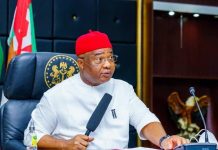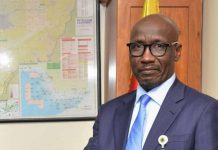Africa Press-Nigeria:
There are rising speculations and distortion of facts on the issue of asset recovery and disposal by the Economic and Financial Crimes Commission, EFCC. But the Commission says that guidelines and procedures on the issue are clear enough to demonstrate transparency and accountability.Tony Amokeodo writes
By the sheer weight of its works, it is apparent that the EFCC is having its hands full. The task of investigations, prosecution of cases, asset tracing, forfeiture and disposal are not for the faint-hearted. They are quite daunting. This fact is a double-edged sword for the Commission. In one breath, analysts are commending it for being diligent and painstaking in handling its heavy assignments of tackling economic and financial crimes.
In another breath, certain analysts are raising insinuations on some issues relating to asset forfeiture, disposal and associated matters.
Clarifying the contentious issue, the EFCC’s Acting Director, Directorate of Asset Forfeiture and Recovery Management, Mr Aliyu Yusuf, says that the issue of asset tracing, forfeiture and disposal need not be a grey area on the grounds that there are guidelines and procedures clearly spelt out in the Establishment Act of the EFCC.
According to him, ‘’ Section 31 of the Act is clear about the matter of asset. The Secretary of the Commission is empowered to dispose of any asset finally forfeited to the government’’.
He also disclosed that the EFCC is thorough and transparent in handling every asset traced to any suspect facing investigations and prosecution.
His words: “Asset forfeiture is usually the result of legal processes necessary for the resolution of illegally-acquired assets traced to any suspect investigated by the EFCC. Whenever a case of economic and financial crime is being investigated by the EFCC, careful attention is usually paid to any asset acquired with the proceeds of the crime.
“The asset may be monetary or physical properties like buildings; landed properties; vehicles, oil vessels , jewelleries, etc. As soon as investigations show any linkage of any asset to an act of corruption, legal processes of forfeiture would be initiated and the resolution of the matter will determine what is done to the asset.”
Yusuf further explained that asset forfeiture may be interim or final, saying , however, that disposal of assets can only be done when a final forfeiture order is granted by the court. Regarding the issue of monetary asset, Yusuf said that, funds may be forfeited to individuals; private companies or government, depending on the source of the stolen funds. He said, “When funds are forfeited to individuals and companies, payments are done directly to them by the EFCC. A case in point is the burst $242million Brazilian bank robbery case involving Emmanuel Nwude and his gang of fraudsters. The EFCC investigated the case, recovered the money and restored it to the bank.
He also disclosed that such a restitution is allowed because investigation linked the bank robbery to Nwude and the appropriate thing to do is to return the money to the victim.
“In the case of buildings and landed property, the procedure of forfeiture may also be interim and final. Every final forfeiture of assets places responsibilities on the EFCC to dispose off the assets. Section 31 of the EFCC Establishment Act (2004) authorises the Secretary to the Commission to dispose off the assets and pay the proceeds into the Consolidated Fund of the Federation.







